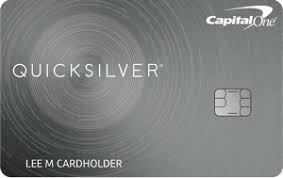Credit Card Review Sites and The Lies They Tell
I've spent the better half of a decade working for these personal finance sites. Most of them are dangerously misleading.

Why trust us?: I’m done playing the game. My reviews have no affiliate links, and no cozying up to credit card companies. Just personal honesty. Every review, insight, and piece of advice comes from a place of integrity. I’m here to empower you, not pad my pockets by spreading lies.
First, please consider subscribing to my email list. Here's what you'll get for free:
- Our printable downloads
- Our digital downloads
- All of our exclusive credit card articles
- Waitlisted for our insights newsletter
I've spent my career working as a full-time employee and contractor for these global publications. Some of witch now have been drug under by Googles most latest algo update (good for you Google).
Wondering which ones? Welp due to NDAs that I naively signed in my youth, I can’t say but if you google ‘Best credit cards for groceries’ I’ve written for 5 of the publications on the front page.
And four of them have questionable tactics in how they rate, review, and make money from their suggestions.
This is how:
Conflict of Interest
Ok if you look at the tip-top of a credit card review article you’ll likely see something along the lines of “Advertiser disclosure”.
Here’s what this will say:
“Clicking on a link may earn us a commission but in no way affects what we right”. — Bull. Shit. Plain and simple.
No matter what those companies say, there is a bias. Publishing is about money first. Always. Now there are good and bad ways to go about it. This is a BAD WAY.
Example:
If I gave you two products to review and told you that we are going to tell the world who is the best and let them decide which to purchase. And you came back and said product A was the best for these reasons. Cool.
But what if I told you to review both but know that we only make money when product B is sold? And if our department doesn't earn enough money then we might have to potentially cut your position.
This is true editorial bias. If they have affiliate links best believe there is no editorial integrity. Period.
Lack of Standardization
Conflict of interest is the biggest problem here but then there are the metrics with how cards are rated. When you see a ‘best of’ article. We call this a round-up.
It’s a powerhouse in the review world because of SEO traffic. Let’s keep the example of ‘best grocery credit cards’.
When you go to these pages here’s what you’ll usually find is a list style of an article
(I say ‘usually’ because I have not visited them all, but can say with a high degree of confidence they’re all doing the same thing.)
The list will be something similar to the following:
- Best overall: The [__]Card
- Best for online shopping: The [___] Card
- Best for Delivery: The [___] card
This setup is perfect for viewers because you can easily find the card that is truly best for you— but reviews prey on you in this way. If you look closely, most if not all of these cards are linked to some application.
This is not for your convenience but for their benefit. And if you look even closer, many of these ‘highly rated’ cards are not alike. At all. So tell me how did you compare a credit card with no annual fee to one with an annual fee and then to another with a membership requirement?
I’ll tell you. They line them up and check a box. Which card has no annual fee? That one gets the highest rating. But what about the one with a membership requirement? Or the other with no initial annual fee but a $95 annual fee the following year?
Stay with me there's more to this shit show.
Subjective Metrics
We’ve all seen them– the ‘star ratings’. This is a beautifully executed marketing tactic but also a completely deceptive metric.
First, those numbers are (typically) made up. I worked for one publisher where during my onboarding I asked how I should rate the cards and find their datasheet. Their response was laughable.
“Well, we just put what we feel it deserves”.
... I’m sorry what!?
People are making financial decisions based on your “expert advice” and you’re telling me that you’re making all of this stuff up.
But If you think about it, have you ever actually seen the data behind a rating table? Any real math behind why something is 4 stars and not 5? That’s because it’s mostly intangible.
Seriously, there should be more restrictions on publishers who make money leeching on consumers but sadly they feed the beast so here we are.
Online ‘Tools’ for Preying on Consumers
Credit card matching tools are literally the worst. Not always but very commonly, they are used to prey on consumers.
First, publishers know who you are. They are able to pull data and use targeted advertising on just about every aspect of your life. One of the easiest ways they collect this info is through their online forms disguised as tools.
Think about that credit card rewards tool. Or that call to ‘Find the best card for you’ — No shame, I’ve been there too.
You’re looking for a card, and you enter your information. Even the basics can be used to find out:
- What you do for work
- How much (generally) you make
- Hobbies
- Age
- Gender
- Spending habits
But their biggest driver→ Find out your debt.
Why would they care about my debt?
There’s this sweet spot for publishers that push financial products. I want to say it’s between $5,000 - $8,000 in credit card debt.
This group do several things that are very beneficial (and very lucrative) for publishers:
- They come back for other cards: More card applications means more affiliate income
- They come back for other financial products (savings account, bank accounts, etc.): More accessory accounts mean more affiliate income
- They open their emails and read their work over and over: Advertisers pay them for readers to open the emails with their ads, click on their links and again apply for their products.
What are you going to do about it?
I’m the messenger.
You can go check anything I’ve said and besides the behind-the-scenes info that only the staff has access to you can go view who has affiliate links, their methodologies for ratings, and their disclosures.
Publishing is always about profits. But how they make their money, is the real truth to their agenda.
Ads, subscriptions, and products they create and sell are great— but you lose all integrity when you are paid to review a product.
What do you think?




Comments ()